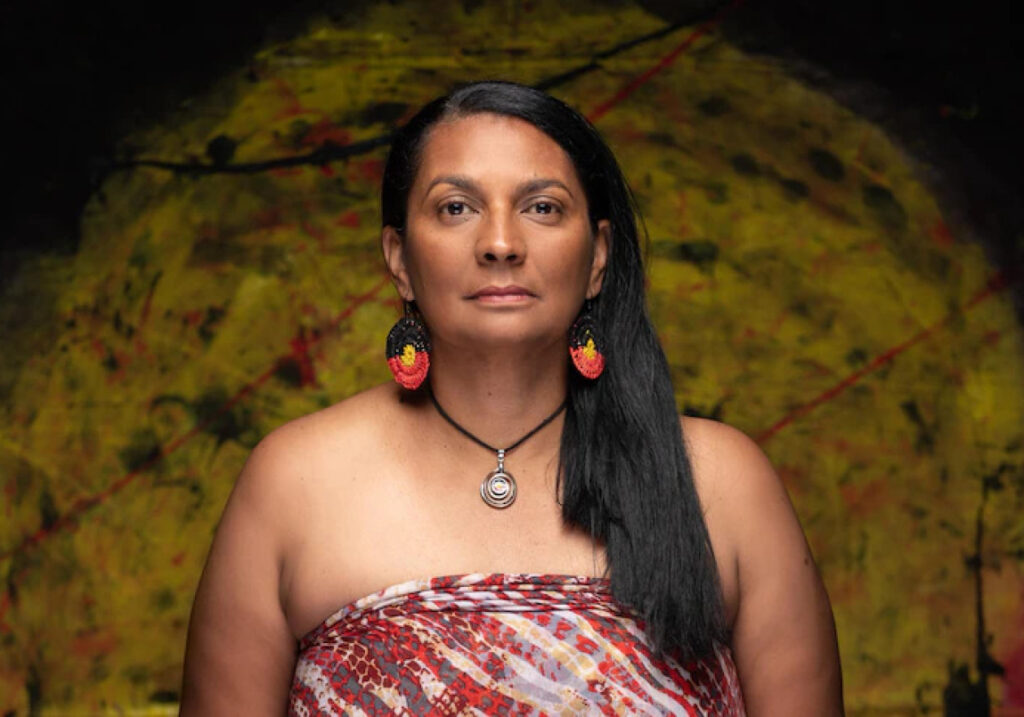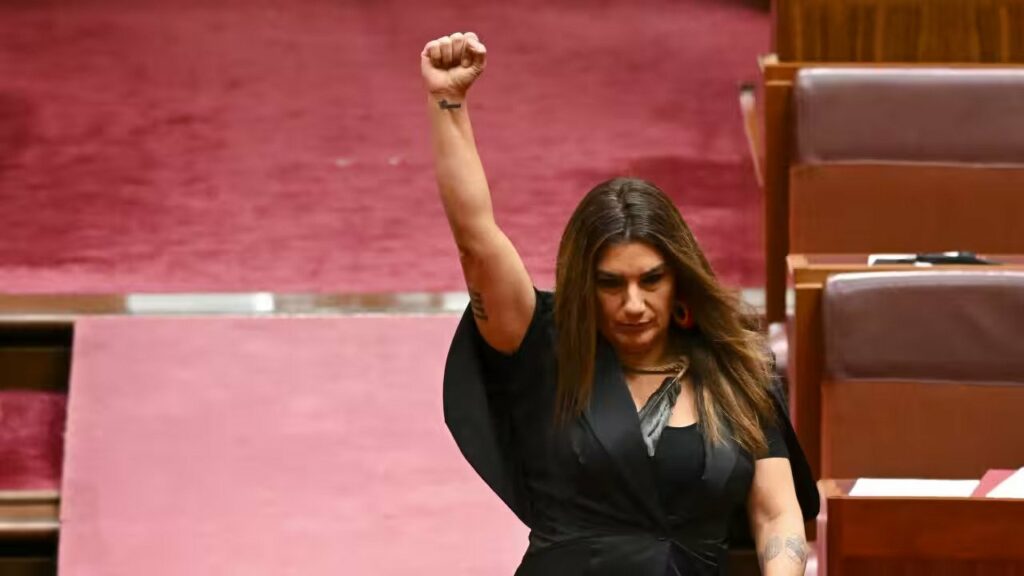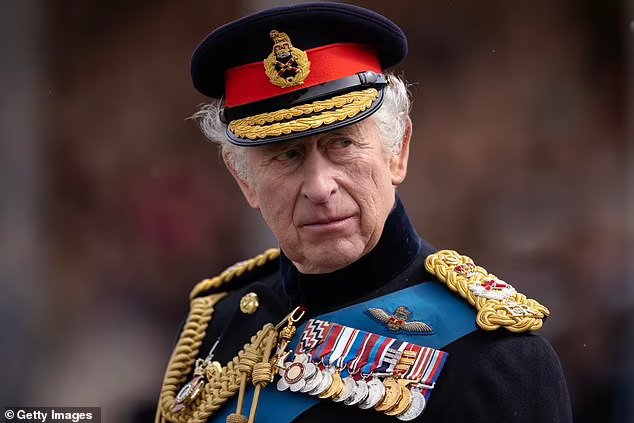On the eve of the coronation, a letter is urging the monarch to acknowledge the “horrific” legacy of British colonial rule.
Twelve Indigenous advocacy groups from former British colonies have issued a joint letter on the eve of King Charles’s coronation. In the letter, they demand an apology and reparations from the British monarch for what they call “genocide” resulting from British colonial rule.
The letter specifically asks the new king to acknowledge the “horrific impacts on and legacy of genocide and colonisation” on Indigenous and enslaved peoples in countries including Antigua and Barbuda, Aotearoa (New Zealand), Australia, The Bahamas, Belize, Canada, Grenada, Jamaica, Papua New Guinea, Saint Kitts and Nevis, Saint Lucia, and Saint Vincent and the Grenadines. The letter was published on Friday.
In addition to the demand for an apology, the joint letter listed several key requests, including the repatriation of remains and cultural artefacts of Indigenous peoples, financial reparations, and a call for the king to support the recovery of Indigenous communities from centuries of racism, oppression, colonialism, and slavery.
Rawiri Waititi, a signatory to the letter and co-leader of New Zealand’s Te Pāti Māori (Māori Party), stated that Indigenous peoples across the world are speaking out to ensure that the Crown takes full responsibility for the damage, impacts, and hurt caused.
British colonial rule began in the late 16th century and, at its height in 1922, the United Kingdom, with the monarch as its head of state, ruled over more than 450 million people across almost a quarter of the globe.
The invasion of traditional lands in colonies such as Australia, New Zealand, and Canada had severe consequences for Indigenous peoples. Thousands were killed as the British sought to cement their control over the territories they had seized, while new diseases further devastated Indigenous communities. Punitive assimilation policies resulted in the loss of language and culture, and forced removal of children – policies that persisted into the second half of the 20th century.
Similar harm was inflicted upon Indigenous communities throughout the Caribbean, while slavery uprooted millions from Africa to work on sugar plantations in the islands. These actions, described by the joint signatories as “crimes against humanity,” have had intergenerational effects, resulting in trauma and inequities in key social indicators such as high incarceration rates and endemic poverty in affected Indigenous communities.
Waititi has described this legacy as “the tail of the monarchy whipping Indigenous peoples today.” He has called on King Charles III to apologize for the genocide, colonization, and enslavement of Indigenous peoples by the British empire all over the world. According to Waititi, such an apology is necessary to begin addressing contemporary issues stemming from this history.
Artefacts, bodies taken
In his recent speeches, King Charles has acknowledged the monarchy’s role in colonization, but he has not made a formal apology or commitment to action. In a speech to the South African government in November of last year, the king recognized that Britain’s colonial past contained “elements of that history which provoke profound sorrow.” He stated that it was important to seek an understanding of this history and to acknowledge the wrongs that have shaped the past, in order to unlock the potential of a shared future.
The rule of the British Empire also involved the theft of valuable cultural artefacts and even the bodies of Indigenous peoples, which remain on display as “exhibits” in several museums overseas.
Between 2016 and 2019, a joint study by the Australian National University and the British Museum found approximately 38,400 Indigenous Australian objects held in institutions across the UK, with about 600 in Ireland.
In response to this issue, the Australian federal government announced last year the creation of a new cultural precinct in the nation’s capital, Canberra, called Ngurra, which means “home” in several Indigenous languages, including Ngaanyatjarra and Pitjantjatjara. The precinct will include a National Resting Place for the remains of Indigenous ancestors that have been brought home from global museums and institutions.
In addition to cultural and bodily repatriation, the joint letter also demands financial reparations to reflect the stolen wealth of Indigenous and enslaved peoples. The British Empire, like other European empires, profited significantly from the exploitation of land, labor, and resources in their colonies.
While Indigenous peoples in former colonies continue to face poverty as a legacy of colonization, Forbes magazine recently estimated King Charles’s personal wealth at “at least $500 million in personal assets, with another $46 billion held in trust as the sovereign.”
The history of Indigenous peoples petitioning British monarchs goes back to 1846 when Tasmanian Aboriginal people wrote a letter to Queen Victoria expressing their grievances over the Crown’s failure to honor a treaty agreement. It remains unclear whether King Charles will respond to the current demands made by Indigenous groups regarding issues such as cultural and bodily repatriation, financial reparations, and an apology for the atrocities of British colonialism.
Indigenous peoples have been demanding justice and acknowledgement from British monarchs for well over a century. In 1846, Tasmanian Aboriginal people petitioned Queen Victoria regarding the crown’s failure to uphold a treaty agreement. Indigenous Australian leader William Cooper wrote to King George V in 1935, requesting intervention to prevent the extinction of the Aboriginal race. In 1977, Indigenous Australian activist Michael Mansfield personally handed Queen Elizabeth II a letter demanding land rights.
Opportunity to ‘reset the relationship’
In addition, the letter was endorsed by Lidia Thorpe, an Indigenous Australian Senator who leads the Blak Sovereign Movement, and Nova Peris, a former Indigenous Senator and athlete who also advocates for the Australian Republic Movement.

Senator Lidia Thorpe issued a separate statement in which she stated that the British monarchy was responsible for the oppression of Indigenous peoples in British colonies worldwide. She argued that the effects of British colonization, including the genocide of Indigenous peoples, the theft of their land, and the degradation of their culture, continue to be felt today. Thorpe called on the Australian government to implement a treaty and a truth-telling process and to sever ties with the monarchy, advocating for Australia to become a republic.

Despite stating that he is “not a monarchist” and appointing an Assistant Minister for the Republic, Australia’s Prime Minister Anthony Albanese has declared that he will swear the oath of allegiance to the new king at the upcoming coronation. In addition to petitioning monarchs, Indigenous peoples in Australia have been advocating for the official recognition of genocide on the continent for many years. After British colonisation, widespread massacres occurred throughout Australia, with nearly half being carried out by police forces. The last massacre took place in 1927.
The impact of colonisation was so severe in the Australian state of Victoria that, by 1929, official records indicated that only 53 ‘full-blood’ Indigenous people and 607 ‘half-castes’ remained. Prior to British colonisation, it was estimated that up to 60,000 Indigenous people lived in the region, with 30,000 being a more conservative estimate. The report Bringing Them Home, released in 1997, found that the forced removal of up to 100,000 Indigenous children from their families between 1900 and 1970, for the purpose of assimilation, constituted genocide.
Australia’s former conservative Prime Minister John Howard vehemently rejected the finding and as recently as 2014 reiterated that he did not believe that genocide had taken place.
Waititi expressed to Al Jazeera that unless King Charles III formally apologizes and acknowledges the Indigenous groups’ demands, he will become another monarch who ignores the struggles of Indigenous peoples worldwide.
Chief Terry Teegee from the British Columbia Assembly of First Nations in Canada, who also co-signed the letter, emphasized that the upcoming coronation provides a chance to reset the relationship between the crown and Indigenous peoples.
He urged the crown to take the concerns of Indigenous peoples seriously and collaborate with them on practical measures to address the ongoing impact of colonization on countless lives.
SOURCE: AL JAZEERA


